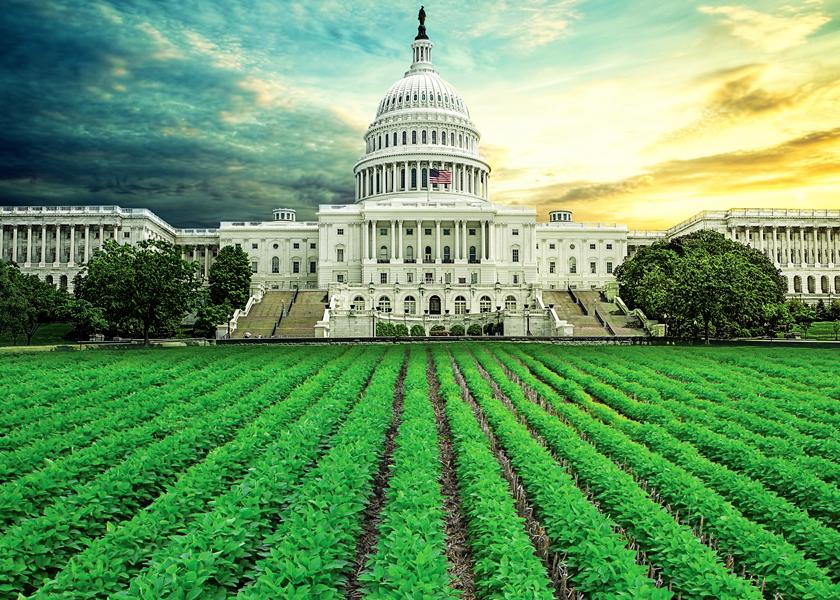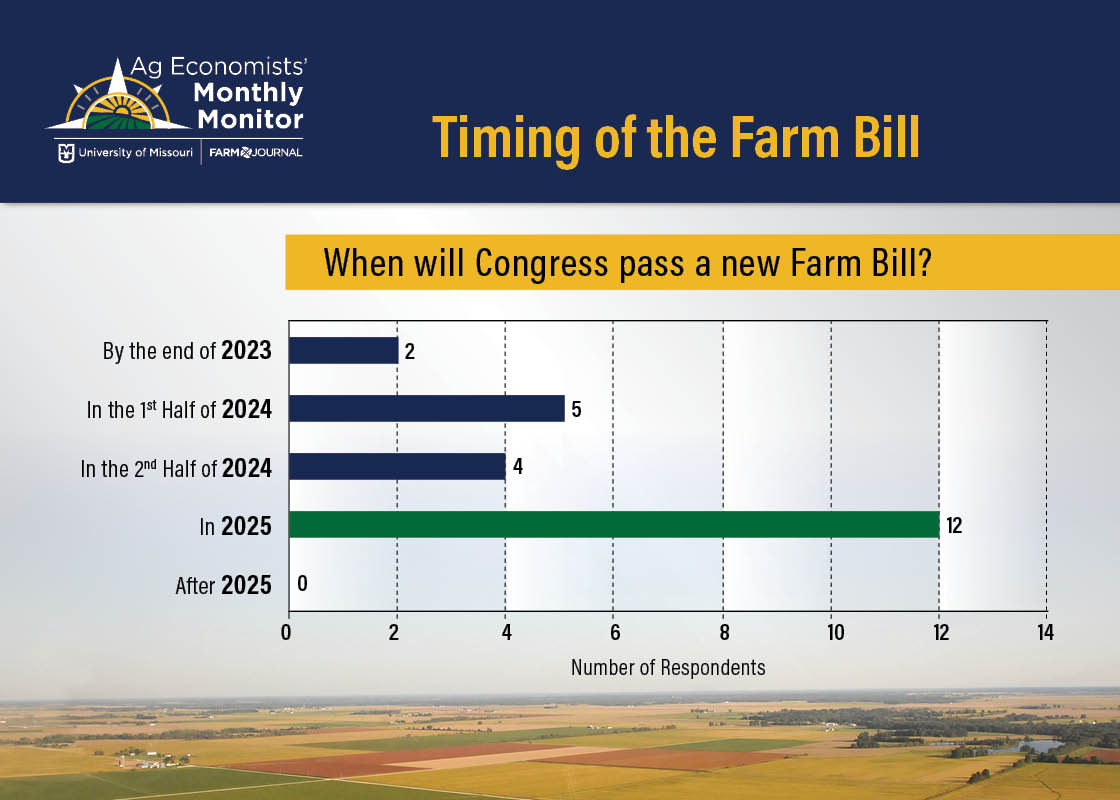As Washington Works to Prevent a Government Shutdown, House And Senate Ag Committees Reach Deal On Farm Bill Extension

An extension of the current farm bill is now nearing reality. House and Senate Agriculture Committee leaders agreed on an extension of the current legislation as a possible government shutdown looms. The extension is tied to a new stop-gap funding bill that the White House calls extreme.
The four leaders of the House and Senate Agriculture Committees released the following statement on a farm bill extension agreement: “As negotiations on funding the government progress, we were able to come together to avoid a lapse in funding for critical agricultural programs and provide certainty to producers. This extension is in no way a substitute for passing a five-year farm bill, and we remain committed to working together to get it done next year.”
The stopgap measure extends the farm bill through September 2024, and the extension includes funding for the 21 “orphan” programs and for the Foundation for Food and Agriculture Research. Dairy subsidies would be extended through Dec. 31, 2024, to avert the looming “dairy cliff” on Jan. 1, when the government-guaranteed price of fresh milk would more than double, driving up prices.
The extension of the current farm bill is tied to House Republicans' proposal of a two-tiered stopgap funding plan (link) to extend current spending levels for some government agencies. This plan aims to avoid a partial government shutdown after Nov. 17.
Key details:
- The proposed stopgap measure would extend funding for certain agencies until mid-January and others until early February.
- Agencies covered by the Military Construction-VA, Agriculture, Energy-Water, and Transportation-HUD bills would have their funding extended until Jan. 19. For the remaining eight bills, the extension would be until Feb. 2.
The House GOP measure would extend farm bill programs and several health-care-related provisions temporarily but contains no supplemental aid for Israel, Ukraine or border management funding, which President Joe Biden requested and which House Speaker Mike Johnson, R-La., framed as a way for Republicans to put themselves in a stronger bargaining position for negotiations with the Senate and the White House on an emergency national security spending bill that would not be subject to the threat of a shutdown.
In the Senate, there are differing opinions on the stopgap plan, with some senators considering a more conventional stopgap measure that extends spending for all agencies until Jan. 19 and does not include aid to Israel or Ukraine. Senate Majority Leader Chuck Schumer, D-N.Y., has teed up a procedural vote Monday afternoon to advance placeholder legislation for temporary funding, likely into January.
Of note: Johnson hopes his strategy will keep the government’s lights on without sparking a GOP-rebel rebellion. But many conservative House Republicans (especially the group of rebels) have demanded that any spending plan include deep spending cuts. If the two-step plan doesn't pass, House Republicans will turn to what they call a full-year continuing resolution, keeping spending flat — although it would contain appropriate adjustments to meet national security priorities.
Johnson, on Sunday, suggested his plan would buy lawmakers time to negotiate individual spending bills, which fiscal conservatives have demanded.
“Washington’s spending addiction cannot be broken overnight,” he said on the social media site X. “But I will not allow end of year megabus spending packages to continue under my leadership.”
Already one rebel Republican, Rep. Chip Roy of Texas, said he would oppose the plan because it would continue current spending levels with no changes or conditions — what is known in Washington shorthand as a clean funding extension.
“It’s 100% clean,” Roy wrote on social media. “And I 100% oppose.”
Some other GOP conservatives have noted opposition. Johnson will need some Democratic votes given his narrow majority and opposition by fiscal conservatives. The White House voiced disapproval of the plan.
“This proposal is just a recipe for more Republican chaos and more shutdowns — full stop,” White House press secretary Karine Jean-Pierre said in a statement. “With just days left before an Extreme Republican Shutdown, and after shutting down Congress for three weeks after they ousted their own leader, House Republicans are wasting precious time with an unserious proposal that has been panned by members of both parties.”
Meanwhile, the White House Office of Management and Budget has already begun its initial communications with agencies on how to prepare for a possible government shutdown.
Longer Term: Likelihood of a 2025 Farm Bill
As House and Senate Ag Committee leaders work on an extension of the current farm bill, the latest Ag Economists' Monthly Monitor shows it might not be until 2025 before Congress passes a new farm bill. With farm income still relatively healthy, and the current state of politics in Washington, the October Ag Economists’ Monthly Monitor shows there’s simply no urgency to get a farm bill written and passed, especially with 2024 being a political year.
The October survey asked economists what they thought the biggest hurdles are for getting a new farm bill written and passed. They said:
- Election year in 2024.
- Overall legislative dysfunction and turmoil, including leadership difficulties.
- Funding issues, including those at the overall government level.
- Competing issues and priorities, paired with limited time on the legislative calendar and no urgency around agriculture.

Of those surveyed, 50% think it will be 2025 before Congress passes a new farm bill, and 20% think it could happen within the first half of 2024.
“Historically, when you get the alignment of a farm bill with that presidential election cycle, you tend to see people want to wait until after that cycle to see what changes — either colors over the White House or within the house of Congress itself,” Tackach says. “So, I think that's what the economists are reacting to. This is a presidential election year next year, and we've got some things we need to address in terms of budgets and funding of the government just in general coming up in November.”
He says economists are taking note of the political realities of what happens in an election year, but also the ag economic picture.
“The ag economy is generally healthy. So, a lot of these changes that you might typically see in a farm bill year, maybe some of them can wait with an extension of the existing provisions and budget allocations,” he says.
Economists even disagree on timing of a farm bill extension. Of those surveyed, the majority think Congress will pass an extension, while two think it will fail to do so. Of those who think Congress will move on an extension, the majority think it’ll happen before the end of this year.







